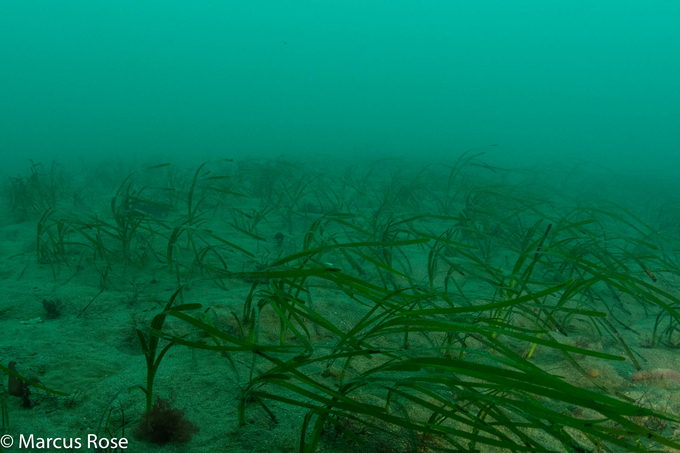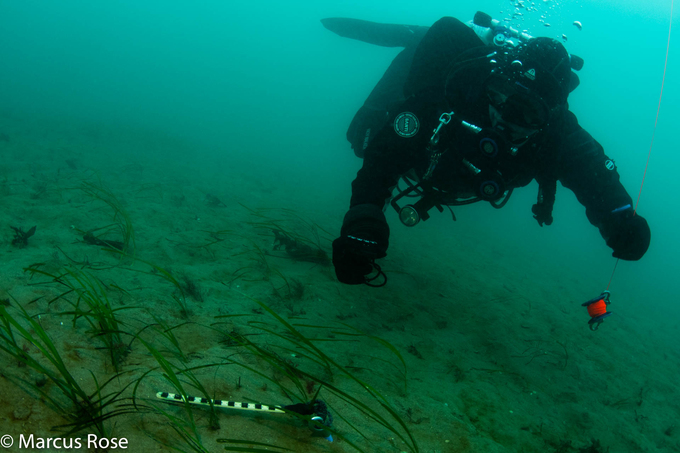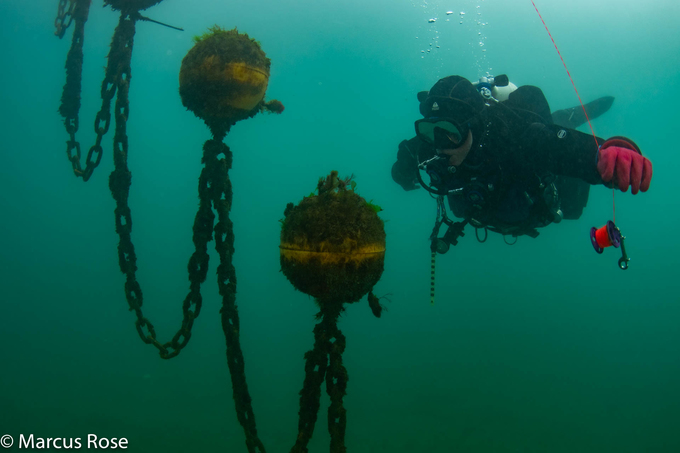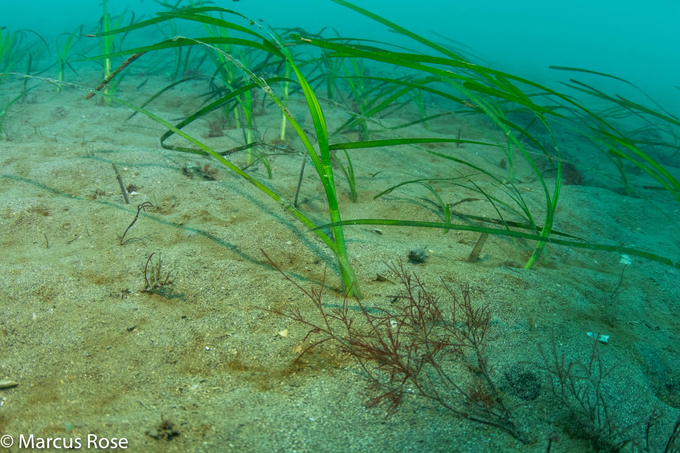Project Baseline UK’s support to the Ocean Conservation Trust (OCT) and the seagrass restoration project in the UK is a great example of citizen scientist divers being used effectively in support of marine conservation. With insufficient commercial divers available to support the required survey work, PB divers offered the OCT a fantastic alternative resource. Not only did the collaboration allow the scientific aims of the survey to be met, it also provided a great public awareness opportunity for the project. PB divers were treated to an in depth explanation of the project, which has subsequently helped to raise awareness of the restoration project and the importance of the seagrass habitat through the media generated.
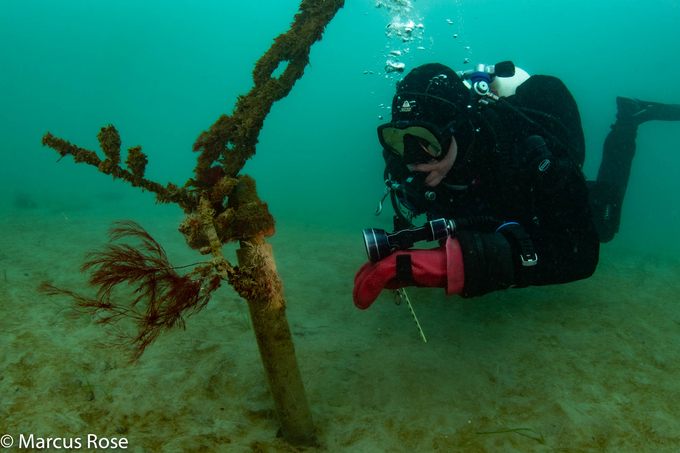
Opportunities to directly collaborate with conservation organizations in this way certainly don’t come around everyday. A proactive approach to collaborating is needed if these opportunities are to materialize at all. PBUK has found that finding projects with outreach or community goals, in addition to the conservation work, is the best way forward as the citizen science element of PB matches these goals. It requires some effort to make initial contact, explain how PB can help and then foster the relationship through planning and delivery of a project, but it is worth it for those divers that want to do more to support marine conservation. In our view PB can achieve far more when collaborating. This is mainly down to the fact that the data being collected has an immediate purpose and is likely to be used in direct support of scientific research. This adds value to an important cause, but is also incredibly rewarding for the divers involved.
In the UK, collaboration opportunities where PBUK gets to work directly in support of scientific divers or conservation groups take some time to develop. We have found that in the early stages, project teams need to build their credibility by supporting grass roots initiatives. This can be achieved by demonstrating what PB divers can do through your own PB sites, or by being involved in other marine projects that are entirely citizen science focused. This shows a level of commitment and demonstrates capacity, which in turn raises awareness of the worth of PB divers. In the UK, we found that this made it easier to then have conversations with conservation groups about more direct and funded support, using evidence to show how PB can be of value to them.
